Despite a wealth of knowledge and experience, many of us have only a pretty faint idea of all the things we need to know in a life-or-death situation. Indeed, there are probably more first-aid kits in your vicinity than there are people who know exactly how to use them.
So one netizen decided to brush up on their knowledge and asked the internet about lesser-known tips that could ultimately save a life. So prepare to take notes as you scroll through all the answers denizens of the net provided, and be sure to upvote your favorites. Comment below if you have any tips that people didn’t list here.
#1
If you find yourself lost in the wilderness somewhere, and your phone is starting to die, change your voicemail to include where you left from, what time and date you left, and what you see around you. That way, if someone tries to call you, you have the essential information in a recording.
Image credits: ThisGuyIRLv2
#2
Instead of saying “someone call 911/an ambulance,” point to a single person and tell them to call 911. If you need additional assistance (an AED, for example), then point to another individual and ask them to get you what you need.If you don’t address anyone in particular, everyone will assume someone else has already called 911/gotten a first-aid kit/whatever, and then no one will do it.
(Source: a mandatory safety course I had to take for work some years ago.)
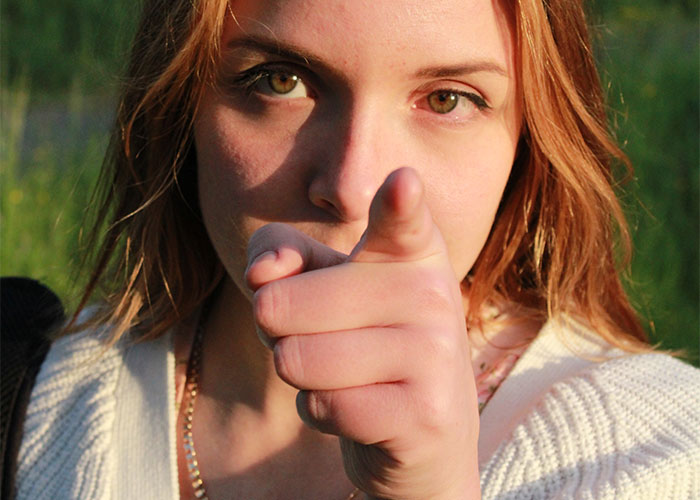
Image credits: femmemmah
#3
If someone (especially old people!) hits their head and is knocked out or just overall fuzzy, and then they get better and feel fine, TAKE THEM TO THE HOSPITAL.A brain bleed presents as nothing until all of a sudden you die. And can look like a lucid period in which they seem fine.
Natasha Richardson was a good example of this.
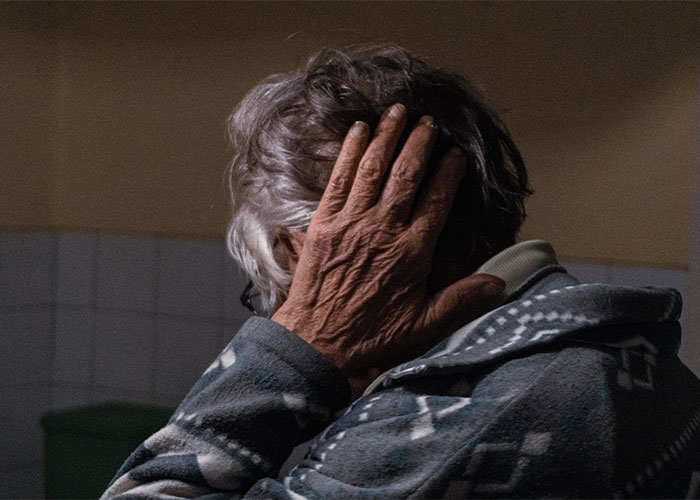
Image credits: sejestedusername
One of the leading causes of death worldwide is heart disease, which unfortunately often manifests in a heart attack. Unlike a lot of medical terminology, a heart attack really is an attack, often requiring immediate medical intervention. In an “ideal” situation, and there is nothing ideal about this condition, paramedics arrive shortly to keep the patient stable as they are taken to the ER.
However, there is still downtime between the onset of an attack and the arrival of specialists. This is where the humble little aspirin comes in. Some studies show that it can slow the onset of a heart attack if ingested quickly, hence the recommendation to chew it up. It will taste horrible and might be a difficult swallow, but it’s better than death. Drinking the tablet may be ultimately too slow.
#4
Always always listen to your “Spidey senses.” If something feels off- pay attention to that feeling. Hair on the back of your neck stands up when walking to your car in a parking lot? turn around and go back in the store. I cannot tell you how many crime victim reports include the phrase “Victim states they had a feeling something wasn’t right…but continued to…”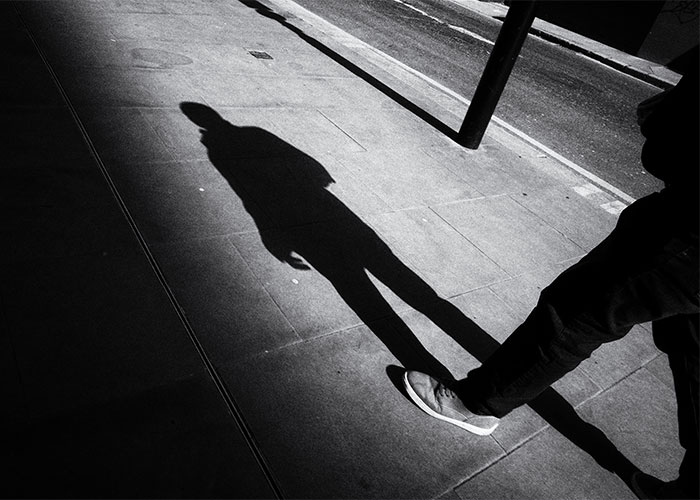
Image credits: After-Opportunity-61
#5
The amount of comments that seem to assume that learning to cric/trach someone is a skill you can teach yourself off the internet is actually alarming. Unless you’re a provider with it in your scope, absolutely do NOT try these procedures especially if you have no medical background. No, you can’t just shove a ballpoint pen or straw through someone’s Cricothyroid membrane, please do not do this.
Image credits: JumpDaddy92
#6
cpr is diffrent for children than adults. and again different for babies than children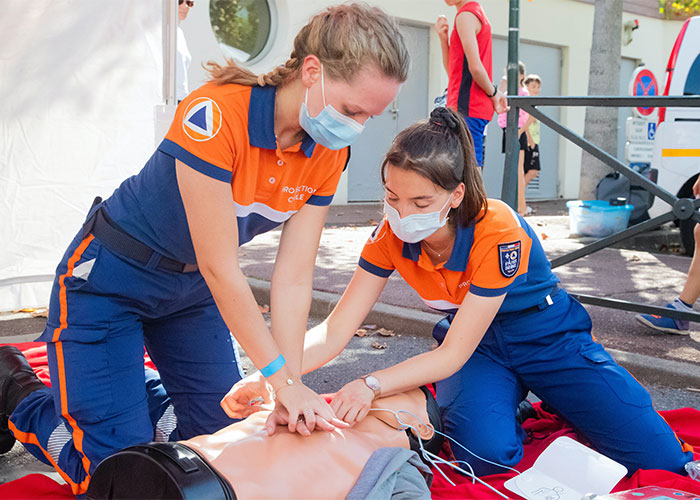
Image credits: child234
But ultimately, a person should call 911 or 112, depending on where they live. These days, many emergency services will take both numbers, to save time, as a traveler might be in danger and may not remember what number to use. However, in many life-or-death situations, people do not react correctly, particularly if they are in public. For example, recently a girl was murdered in public in Delhi, India, as bystanders looked on.
#7
Shouting "FIRE!!" instead of "Help!" will get people to react faster. Cop told me that one.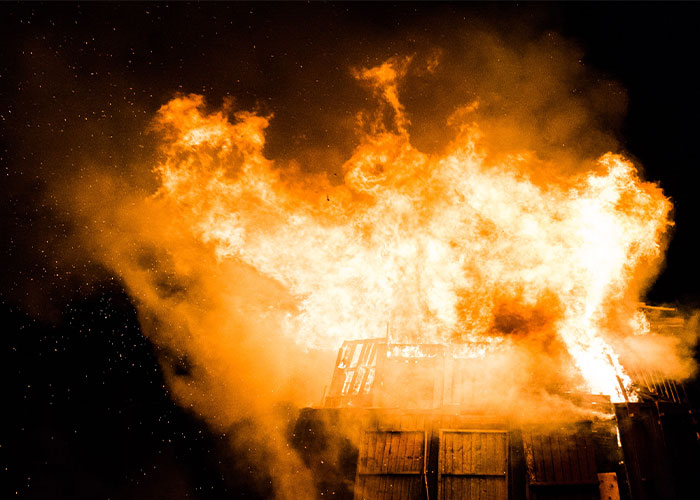
Image credits: AnnBell62
#8
Prioritize your safety first. If you are the first to arrive on scene and see people need help the very first thing you should do is: Stop, look around for potential dangers and do what you can to mitigate them. Live electrical wire shorting out in water nearby? CPR isn't your priority, shutting the breaker off and moving the wire away is. Don't forget to look up when doing the scene survey. EMS has a name for people that don't check first: canaries.
Image credits: Burstar1
#9
When using an epi-pen do not cover the end opposite to the needle with your thumb. There's a hole at the other end, if you cover it you create a vacuum and nothing will come out of the needle.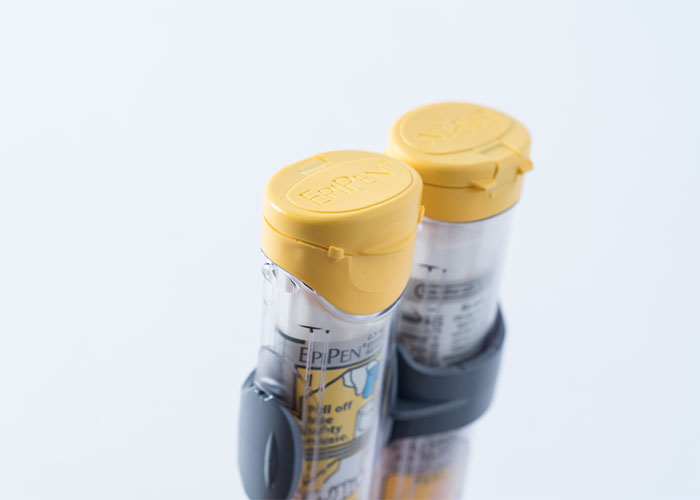
Image credits: Skunkernator
As shocking as this sounds, this is another instance of the “bystander effect,” where a group of people will not react to an emergency situation or crime because they assume that someone else will call the authorities. This is why people are instructed to ask specific people for help, as most humans do actually want to do something, but will often fail to take action unless directly prompted.
#10
A fire extinguisher. People forget to pull out the safety pin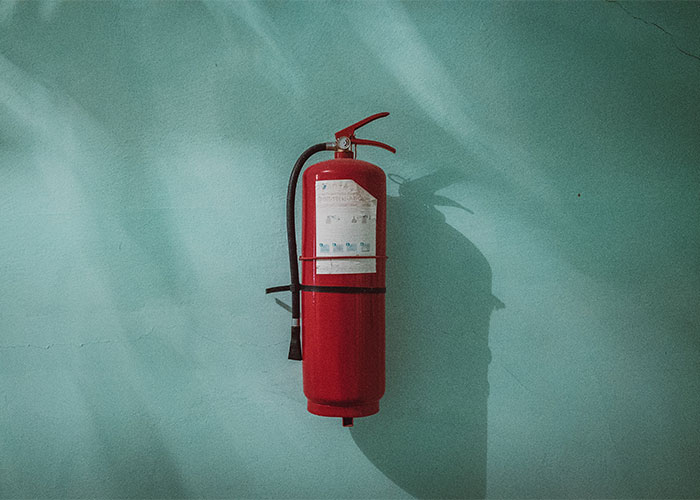
Image credits: MolassesReef
#11
If you find someone unconscious but still breathing and with a pulse, please put them on their left side. This will save them from aspirating on saliva or vomit.
Image credits: PaulyRocket68
#12
Take first aid class. And especially parents or people with older relatives.Was always interested in because a parent saved me from choking as a baby, and one day the said parent had a stroke in front of me. I was terrified but acted correctly. If you think it's easy during first aid class, in real life it's the same, but 1000 times faster because of adrenaline and fear.
Now they're safe and healthy. Can't fathom if I didn't knew a s**t, they died and I would have spend my life thinking "What if ...".
Often, if there is a crowd and no one is reacting, people feel self-conscious about making a scene, calling the authorities, or anything else. We don’t like public attention or to stand out, so people tend to hold on to hope that someone else will take care of it or has already done something. So, as the post here says, in an emergency, point at a specific person and tell them directly what to do. Chances are they will intervene to help.
#13
Never, ever, take a motorcyclists helmet off if they are not in direct danger after having an accident. The same as not getting someone out of a car.There could be a serious head injury (despite wearing a helmet) and helmet could be the only thing holding their head together. Waaaay too many people think you have to take the helmet off immediately.
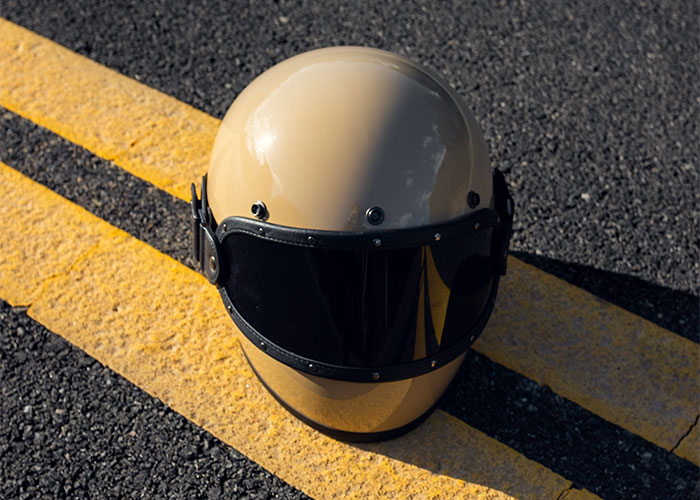
Image credits: SathanSax
#14
chewing an aspirin in case of a heart attack can save your life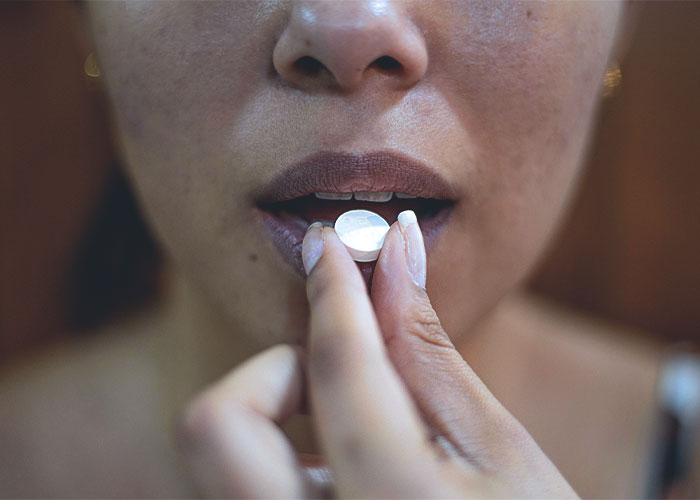
Image credits: TheUselessOne87
#15
Epilepsy first aid. If you see someone having a tonic clinic seizure (the kind where they lose consciousness and go into convulsions):-DO NOT put anything in their mouth under any circumstances. You could lose a finger (remember, these are motor movements with no control over force) or they could choke.
-Move anything that they could injure themselves on a safe distance away
-Stay with them (a safe distance away while they are convulsing) and time the seizure.
-Turn them on their side into the [Recovery position](https://www.tomwademd.net/wp-content/uploads/2016/01/Recovery-Position.jpg) when it is safe to do so. This will prevent choking and keep the airways open.
-If they immediately go into another seizure after the first one stops or the seizure lasts longer than five minutes, call emergency services. This is known as status epelepticus and can be life threatening.
-The individual will likely be confused and feel unwell when they regain consciousness. Explain what happened, and check whether they have a history of seizures. If this is the first time they have had a seizure, treat it as a medical emergency.
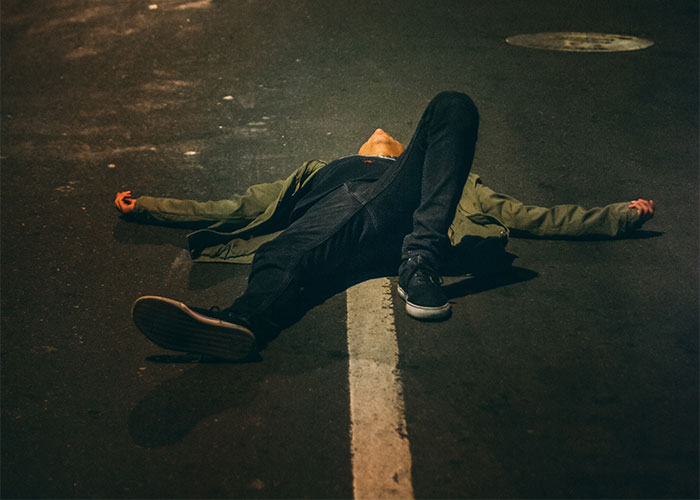
Image credits: SwiggityStag
If that sounds hopeless, and there are countless examples of people killed or hurt because of inert bystanders, know that in many cases people will actually intervene. Based on a study using CCTV cameras in Lancaster, Amsterdam, and Cape Town, bystanders would actually run to help a victim, call for the authorities and sometimes even risk their own lives. Unless the perpetrators were actively armed, most people do look out for our fellow citizens.
#16
Juice box, soda, gatorade - basically anything with sugar in it, (preferably a liquid so it's less of a choking hazard), can immediately help someone with dangerously low blood sugar.This most often (but not always) happens to diabetics who's medication vs. sugar intake got unbalanced, which can be as simple as them taking their meds but forgetting to eat breakfast.
If someone you know is diabetic and they start suddenly, inexplicably acting strange, that would be a good time to give them sugar. It's possible that it will cause their blood sugar to go higher than it should be, but having it too low is more immediately life threatening.
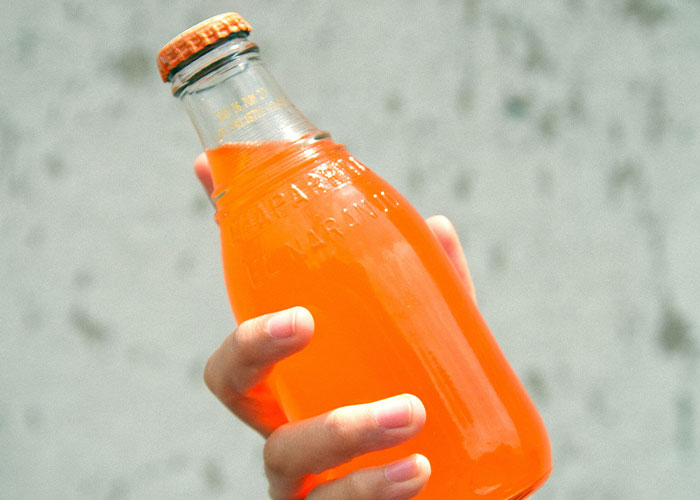
Image credits: 3mothsinatrenchcoat
#17
A simple phone call to check-in can help someone decide that going on is the right choice today.Life is low points and high. Help someone get to the next high point. Call a friend.
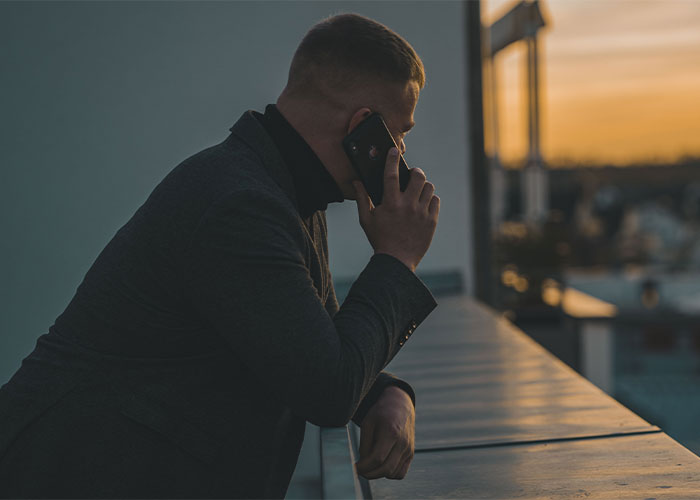
Image credits: anon
#18
If someone tells you they've been thinking about killing themselves, you can remain calm. Take a little time and sincerely hear them out. Try to understand what they're telling you. Do not hide from their pain--it's lonliness and hopelessness that kills them, but their feelings can't hurt you.Tell them whatever you can honestly say about their personal value, but don't make up lies. Ask them if they will be safe when they leave. Encourage them to talk to a professional.
All you can do is be there and be real.
Their life is not in your hands.
Any choice they make is their own.
#19
When doing chest compressions for CPR, you have to push HARD. I'm talking "break their ribs" hard (which is a normal occurance during CPR). Do not let tv shows trick you into thinking you can give a light little shove and they'll come back.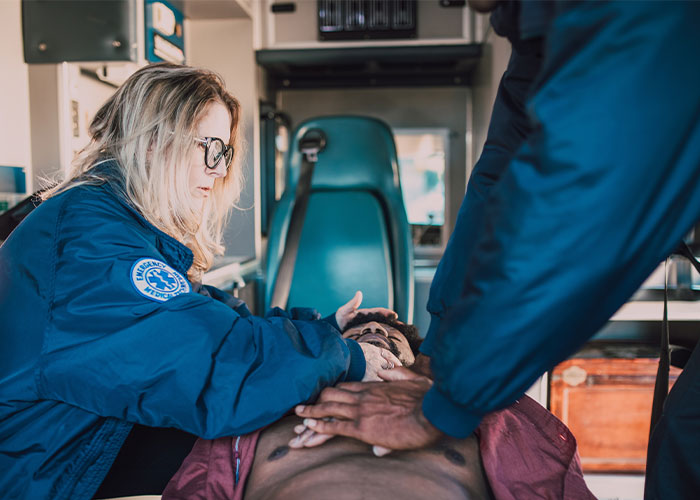
Image credits: kiwiiikee
#20
Don't put a spoon in the mouth of a person having a seizure.
Image credits: The-Guy-In-Grey
#21
If you're engulfed in flames, don't run. Drop to the ground and roll over until the flames are extinguished.If someone else is on fire, tackle them (if safe) and cover them with a jacket or other piece of closing. Focus on their head first since hair catches fire very quickly.
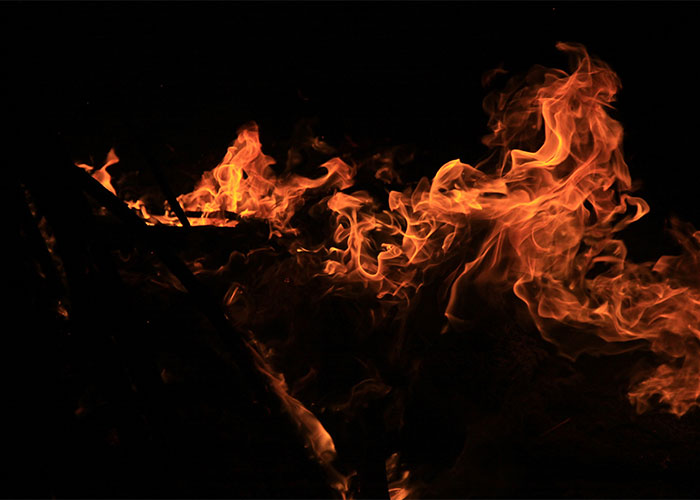
Image credits: Algum
#22
Heimlich maneuver, especially the modern day version. You now should do 5 hard back blows + 5 abdominal thrusts.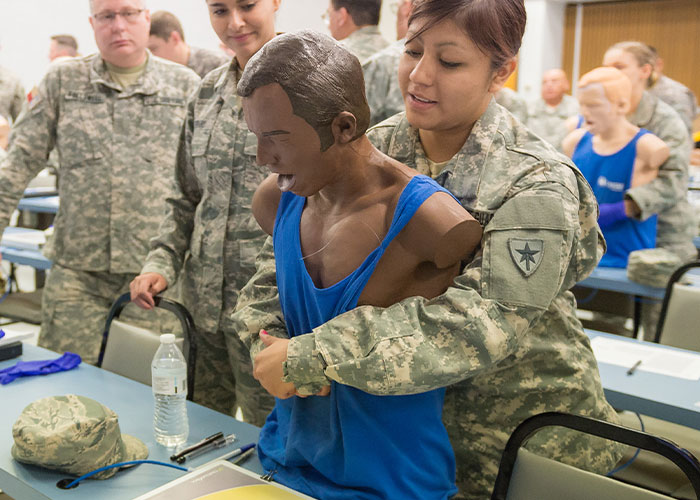
Image credits: Whyyyyyyyyfire
#23
Keep water in the car a blanket a towel clothes flashlight and a lighter.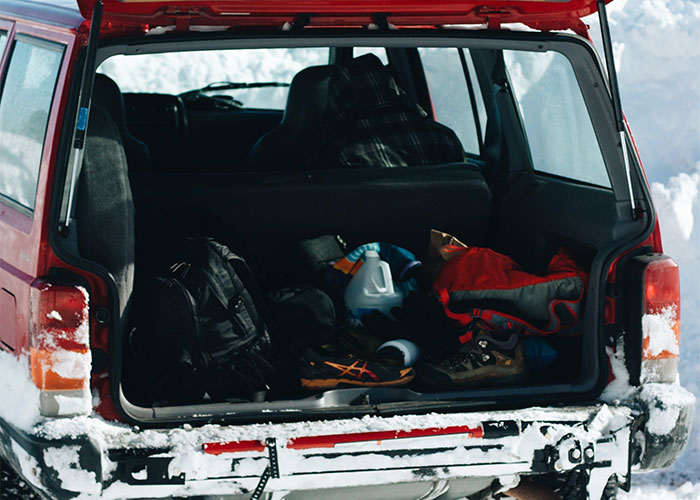
Image credits: JockSandWich
#24
Important to recognize signs of s stroke, immediate medical attention may save your/their life:- inability to move or feel on one side of the body/face
- problems understanding or speaking
- dizziness
- loss of vision to one side
- strong headache different from usual
Call an ambulance immediately or go directly to the hospital!!!
#25
If someone is drowning, don't jump in to save them. Chances are you'll both drown because the panicking person will cling onto you. Your best bet is to find something that floats and throw it to them, or swim out to give it to them but keep a safe distance.If someone does grab you or tries to climb on top of you, fight them off and swim downwards to get away, they won't try to follow if you go underwater.
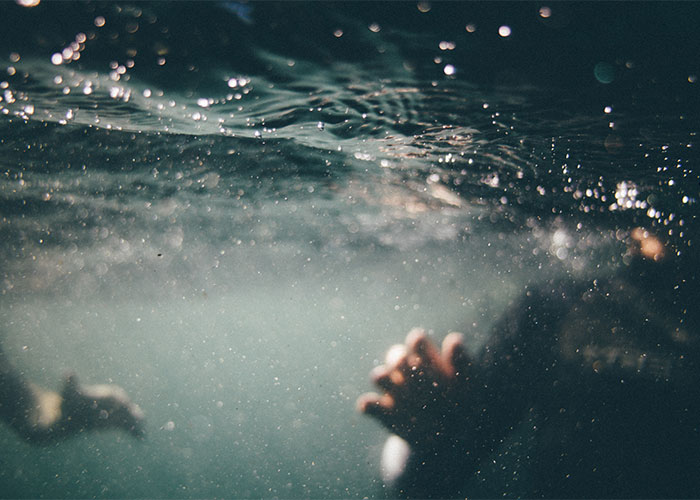
Image credits: OpinionatedNonsense
#26
IF you’re ever impaled or stabbed obviously don’t remove anything but if it passed through or is no longer in the wound use a tampon to help with bleeding control also works w bullets wounds and serious nose bleeds. Duct tape and any semi sturdy material lasting can create a usable chest seal I’ve seen some first aid kits contain small rolls of duct tape recently#27
Narcan. People know it saves lives, but fewer know just how easy and safe it is to use. One blast of nasal spray can bring someone back. Where I live (Canada), it's available free at the pharmacy along with free training to anyone who wants it.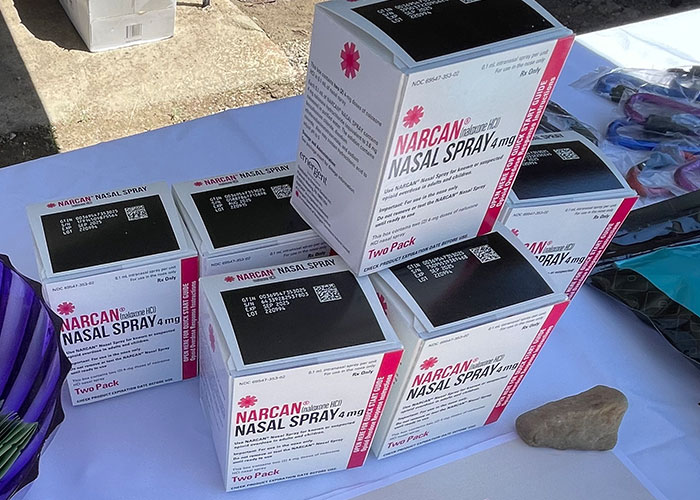
Image credits: StrawberriesRGood4U
#28
If you attend large scale outdoor events like concerts or NYE parties, learn how to recognize the signs of a crowd crush and how to navigate out of it.- Keep your hands at your chest, like a boxer, this protects your rib cage to keep a space around your lungs so you can breathe.
- If you fall, curl into a ball and cover your head.
Etc.
#29
#1: Take a Basic First Aid/CPR class. A lot of Fire departments offer them for free. Call your local Fire Dep (NON Emergency Line) and ask.#2: Learn the symptoms of a stroke. Knowing what to look for if someone is having a stoke can really make the difference. Time is a big factor here.
#3: Learn the symptoms of a Heart Attack. Recognizing the symptoms can save someones life.
#4: Learn how to properly perform the Heimlich on a choking victim and Yourself. I recently learned that someone I knew passed away because he did not know how to do this on himself. He was 25.
#5: Beware of your surroundings. Listen to your gut. If something dose not feel right, leave.
#6: If you are in the wilderness and everything gets quiet, There is a predator near by.
#7: Cliff Diving or diving into water from any height. "Swim It before you dive it." I do not care if your friends are doing it, You do not know what is under the water or how deep the water is until you find out for yourself. Swim it first. And do this every time you go to dive your fav spot. What was safe last year may no longer be safe, Swim it first. Many ppl each summer are injured or die for not following this rule.
I know that some of these may seem like common knowledge but they may not be as common as they should be. Example the lose of my 25yo friend.
#30
Honey. Give to a child who has ingested a small battery. Slows down the release of battery acid whilst waiting for the ambulance.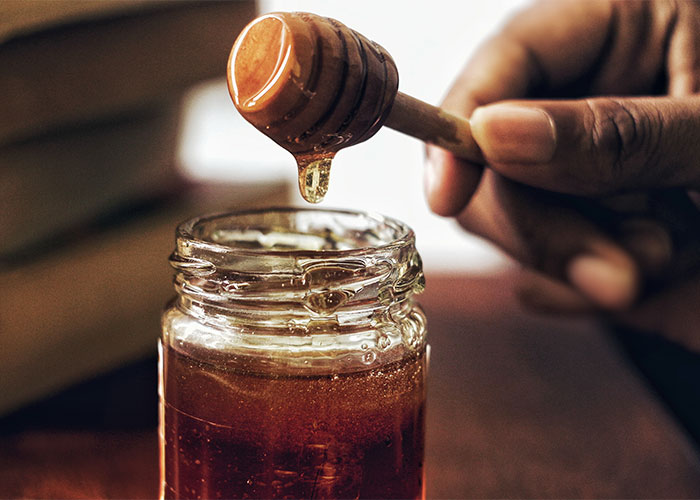
Image credits: StickiSmurph
#31
Immediate chest compressions on someone who has just gone into cardiac arrest. You don’t need to know exactly what your doing or do them perfectly; or give mouth to mouth. I’ve seen chest compressions lead to people beating the odds with out-of-hospital cardiac arrest.#32
Here is something that is incredibly wide spread and needs to be addressed.Tampons are not an effective method of bleeding control. This is a myth. There is a reason combat medics do not carry kits full of tampons. Paramedics do not bring gunshot victims to the trauma bay with tampons sticking out of their wounds.
Pressure dressings and tourniquets control bleeding in extremities and junctions (armpit, neck, groin). Bleeds in the torso will often require surgical intervention and are not easily controlled even by professionals at the field level.
A tampon will absorb blood. It may help stop a small non-life threatening bleed. Anything significant will require a lot more. If you stick a bunch of tampons in a gunshot victim then now they are both shot and full of blood soaked tampons.
#33
Heart attack symptoms differ between men and women.Women are more likely to experience discomfort in their jaw, neck, upper back and abdomen, than they are chest pain.
#34
A flight plan. Tell people where you are going and when you expect to come back if you’re going to be in a remote area.“Hey Ryan, I’m driving up to Upper Preet on hwy 10 to buy a pie. I’m coming back via New Preet on the dirt road. I’ll be back by 5. If you don’t here from me 7, call Dale.”
#35
Staying calm. The first step in any stressful situation is keeping yourself in check. It's easy to freeze but if you practice body awareness you can snap yourself into moving.Learn cpr, do it to the beat of staying alive, kids cpr is different so learn both.
Remember to assign someone to call 911. "You with red shirt call 911!" People freeze, give them a direct command and leave no question qho you assigned to do the task. If you are alone, put phone on speaker and keep doing compressions If ur doing cpr. Don't stop the compressions.
Carry narcan, it's about to be otc yall! Yay!!!!
If the person is breathing put then in recovery position.
I think a lot of people know these though but it's all the know how I have.
#36
diabetics with low blood sugar often appear drunk. If you see a homeless person stumbling around seemingly intoxicated all it takes is a simple "excuse me are you diabetic?" and if they say yes you can buy or give them something sugary. If they say no you can go about your day.#37
This is super obvious but I just wanna share the story. Learn your CPR and Heimlich maneuver. My mom almost choked to death one night when I was a teenager. I was lucky I wasn't wearing my headphones because I heard some horrible sound, ran downstairs and my mom was almost blue in the face choking. I panicked, got around her and attempted the Heimlich but I was too high up and ended up leaving a contusion on her sternum and ribs which pained her for weeks. I basically punched my mom right in the chest. She directed my hands to the right spot, I cranked down and she coughed up the obstruction. One of the scariest moments of my life. It scares me to think that if I was playing video games or listening to music that night my mom would be dead.#38
when you have to fight, you fight like your life depends on it, because it probably does. Dont punch them twice and call it a day, because thats just gonna make them more determined to end you. fight until theyre unconsious, fight till they cant move. obviously, fighing is a last resort, but its important to have the right mindset.#39
If I’m hiking or trekking somewhere remote I carry a tube of medical grade honey.It can be used to treat wounds, burns, skin problems, and is a good antibacterial.
And it also does double duty as a calorie-dense food source with some moisture content, that could help you survive an extra week or so.
Some studies even suggest consuming honey might offer antidepressant, anticonvulsant, and anti-anxiety benefits. Especially useful in emergency situations.
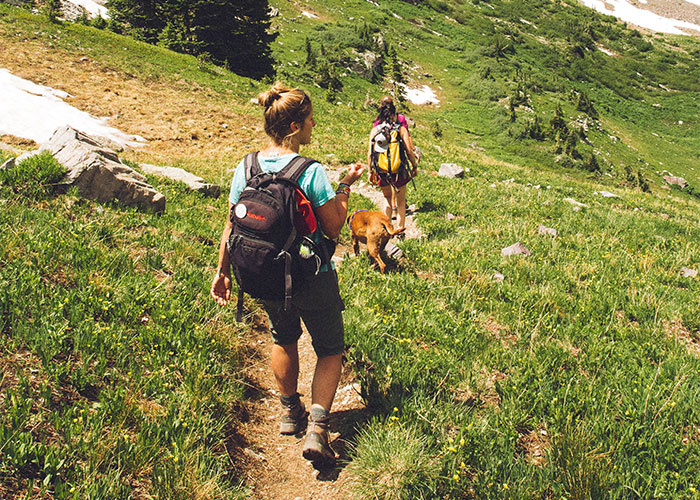
Image credits: Ivymantled
#40
If you god forbid, have to do cpr on a baby and decide to do mouth to mouth, DO NOT take full breaths. Their lungs are MUCH smaller than yours. Fill up your cheeks with air and blow.When giving the Heimlich, remember to thrust up not just in.
#41
If you’re being chased by bees don’t jump inside the water they’ll just wait for you to get out#42
Prioritize the top 3 organs: Brain, heart and lungs.If someone gets hit on the head, has weird neurological symptoms, complains about breathing difficulty, or heart/chest/left shoulder pain, etc SEEK ATTENTION IMMEDIATELY. If it seems like nothing, that's fine, just get it ruled out. You can live for days to years with issues in other areas of your body, but you only have minutes if any of your top 3 go down.
#43
Credit cards, sunglass lenses, or other flat (or mostly flat) small objects can be placed over puncture wounds to the chest to prevent the lungs from filling up with excess air. Quite a few combat gauze manufacturers even include a small plastic dome in the packaging for this reason. But in a pinch, anything flat that can form an airtight seal over the puncture wound will keep pressure out of the lungs while you keep pressure on the wound itself like you would for other bleeding injuries.I’ve heard of some people who got really creative with this over the years. Things such as shot glasses, dodgeballs, challenge coins, and cellophane wrap have been used to save lives in this manner.
#44
Deodorant. It is like pepper spray but legal in most countries.#45
If you get trapped in an avalanche just spit so you know which way is down(gravity) then dig the opposite way up.#46
Situational awareness#47
There a special bandage for snake bites the bandage shows how tight it should go on when tight enough the bandage shows squares instead of rectangulars.#48
Epi pens are commonly known how to be used, but there’s actually 2-3 more doses inside of it. You have to break open the cartridge, but there are more doses inside just in case you need them. Very useful thing to know, especially when in the backcountry.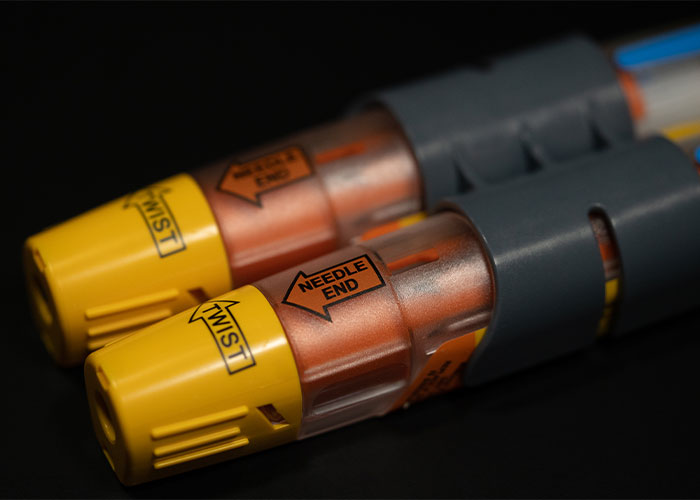
Image credits: BeetCoffee
#49
Probably too late for this post, but if you know a depressed/depressive person that is suddenly not depressed just out of the blue, check on them.They may be genuinely feeling better, or they may have decided that they're going to attempt suicide, and that makes them feel better.
#50
If someone’s been impaled by something, and the object is still lodged in their body, don’t try and remove it. Stabilize it with tape and call 911 ASAP.#51
Ziplock bag or any sort of plastic bag for sucking chest wound.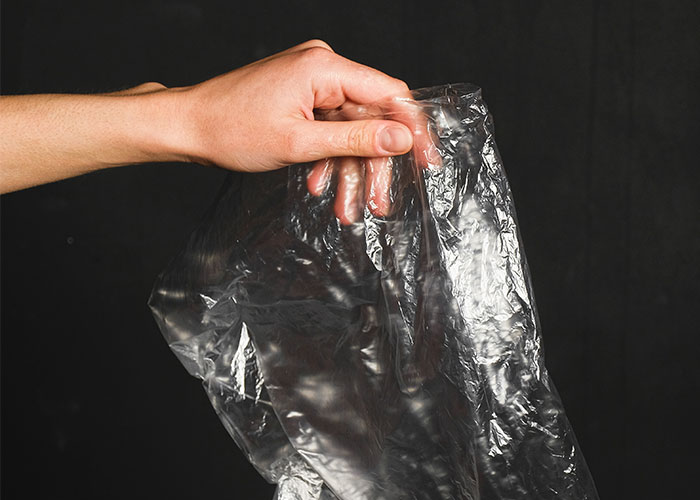
Image credits: thunderdome180
#52
Cold weather? Car breaks down? One candle can keep you sufficiently warm. But you should also keep a cold-weather emergency kit.#53
CPR instructor here! Most medical emergencies can be avoided with proper planning. Whether it be logistically, nutritionally, or just choosing to not be stupid or blackout drunk - we all have the agency to avoid most emergencies before they are emergencies.#54
Chest compressions! Chest compressions early in a cardiac arrest are everything! They're the difference between recovery and brain death!#55
Unlike in the movies, performing CPR on a person doesnt just bring them back to life. CPR needs to be sustained to keep the person alive, and can keep somebody alive for a few hours If you're good enough. Keep giving CPR until help arrives.#56
The removal headrests in car seats, their secondary purpose is to be used to smash out car windows in a emergency, hence the bid sharp steel prongs#57
A chair can be used to Heimlich maneuver yourself.
Image credits: welltriedsoul
#58
A ceramic spark plug can easily shatter a car window if a small child, elderly person or animal is locked in the car on a hot day#59
If you are worried a small child ingested something dangerous like a toy or battery, instead of asking them, “did you eat -*insert item*-?”, ask, “where is -*insert item-*?” or “can you show me where -*insert item-* is?” Children often panic and think they’re in trouble or might not understand well if you ask them about ingestion, but are much more direct and clear-headed if you ask about their location. This only works for children who are a little older than a year who can understand basic instructions. If you’re unsure, don’t hesitate and just get them to the closest ER and have a second person call poison control at the same time (if you’re able).Also for children (and adults), the dose often makes the poison. Just because things like play-doh are labeled non-toxic doesn’t mean it’s safe for a child to eat a larger amount. The salt content in an ounce can kill a small child. Poison control is your friend.
#60
A defibrillator. A lot of public spaces have one, but using one i's not universal knowledge yet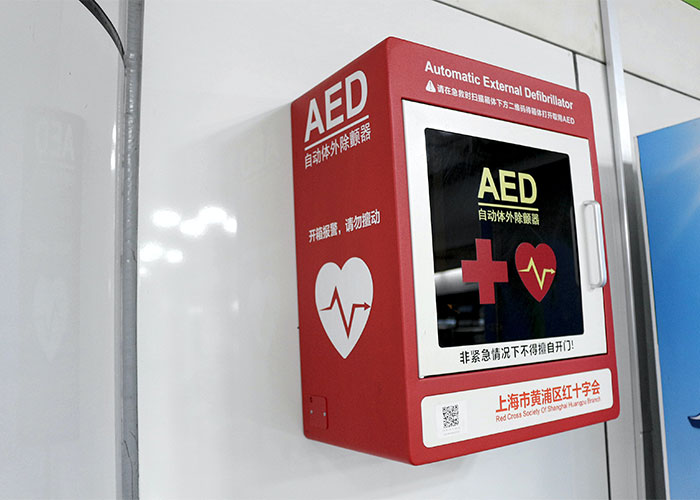
Image credits: TheOnewhoFixes
#61
If you know someone who has diabetes or suspect has an incorrect blood sugar based on odd behavior or otherwise, give them a glucose tablet, sugar candy, or other sugar product that can be consumed quickly AND call for help AND/OR direct someone to call for help. While having a high blood sugar level is bad, a really low blood sugar level can cause more harm in a short period of time.#62
A belt. Put a half twist in it around a limb, tighten with anything at hand and it’s an improvised tourniquet. It will work just as well as the real thing and buy enough time to get EMS there.#63
112 is the universal help nhs number for foreign contries#64
Office Ties or belts can make a good tourniquet. Out of style doesn't mean out of use.#65
If you need to make somebody vomit, make them eat a spoonful of powdered baking cocoa. It’s so dry and bitter you will vomit.#66
In an active shooter situation remember run, hide or fight in that order. If you can run away feasibly do that. If you are unable because say exit is blocked and you have time and location to hide try that next. If you have no choice but to fight then that is what you must do but be strategic to improve your odds. What can you use to distract or throw at shooter to get the upper hand. If there is more than one person there to fight do some planning e.g. one person attacks shooters left side one from the right. If more people are available divide up which limbs on shooter you will target, etc. FEMA and other government websites have very useful training on how to improve your odds of survival in these situations.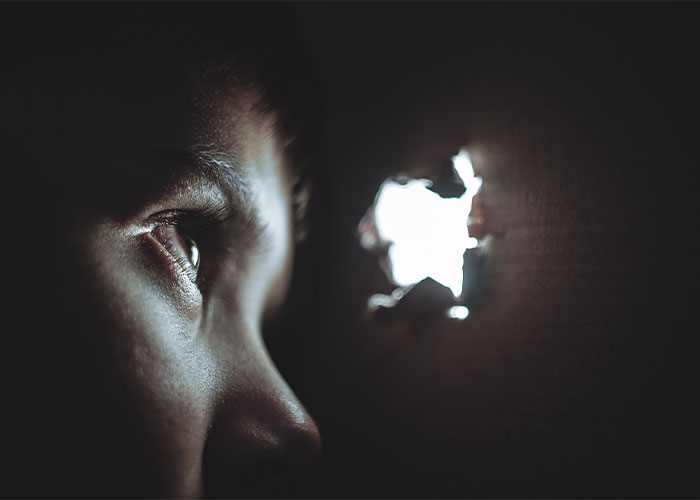
Image credits: Frequent_Ad9656
#67
LifeVac anti-choking device 100% if you have children.#68
There's a really great program called Stop the Bleed. It teaches civilians the proper techniques for helping others who have suffered a serious injury and are bleeding uncontrolllably.https://www.stopthebleed.org/
#69
A tourniquet, but you need to learn how to use it.#70
*A hug.*
"Stay .We need you here."

















